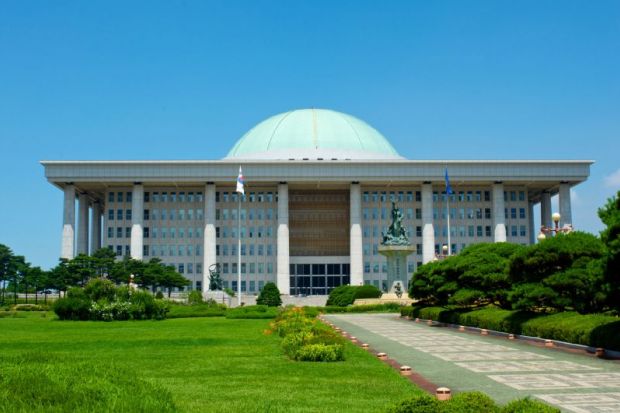Several elite high schools in South Korea are set to lose their licences as part of a government drive to make university admissions fairer in a deeply hierarchical system, but scholars have questioned the effectiveness of such a move.
The Seoul Education Office announced this month that eight of the 13 “autonomous private high schools” in the city would be stripped of their licences after they failed a performance test, which is carried out every five years.
The decision must be ratified by the education minister, but this is considered likely given that the president, Moon Jae-in, promised to abolish the schools during his election campaign in 2017.
These schools charge high fees and may set their own curricula – a model designed to allow them to provide students with a range of courses. But there have been concerns that in recent years the schools have focused their curricula on the subjects of the Korean College Scholastic Ability Test – the university entrance exams – creating a hierarchical school system in the country. There are 46 such schools across South Korea.
The three traditionally most prestigious universities in South Korea – Seoul National University, Korea University and Yonsei University – are known by the acronym SKY. Access to these institutions, which is often seen as determining career chances, is a fierce competition.
So Young Kim, head of the Graduate School of Science and Technology Policy at the Korea Advanced Institute of Science and Technology (KAIST), said the eight high schools failed on a measure of diversity, which judges “how much effort a school makes to diversify its student population”.
“My understanding is that this is part of a bigger agenda of the current administration to equalise university education,” she said.
However, Professor Kim continued, the decision has been criticised by people on both sides of the political spectrum, and some have pointed out that “partial redesignation of elite high schools would not resolve our extremely competitive (and now unequal) admissions patterns”.
“For the conservative side, this is a decision unfair to customers of better-quality education. For the progressive side, the government didn’t fulfil its election promise to eliminate all elite high schools,” she said.
Chang Kim, director of the Korean Association of Human Resource Development, said the Moon government “clearly has a willingness to reject education focused on the Korean College Scholastic Ability Test and broaden the range of ways in which students can enter universities”.
However, he said, this might make it difficult for institutions to evaluate students fairly, even if the elite high schools are abolished.
“The Korean CSAT, which can be quantified, [provides] a fair opportunity for everyone…In contrast, aptitudes and talents of students are separate areas that can be enhanced by parents’ wealth,” he said.
“Therefore, if the universities’ fair evaluation criteria are not supported, the meaningful policy of the Moon government can lose its light. The road to university has become more diverse, but how to evaluate the various exercises fairly remains a separate matter.”
POSTSCRIPT:
Print headline: Licence denials open Korean admissions debate
Register to continue
Why register?
- Registration is free and only takes a moment
- Once registered, you can read 3 articles a month
- Sign up for our newsletter
Subscribe
Or subscribe for unlimited access to:
- Unlimited access to news, views, insights & reviews
- Digital editions
- Digital access to THE’s university and college rankings analysis
Already registered or a current subscriber? Login








